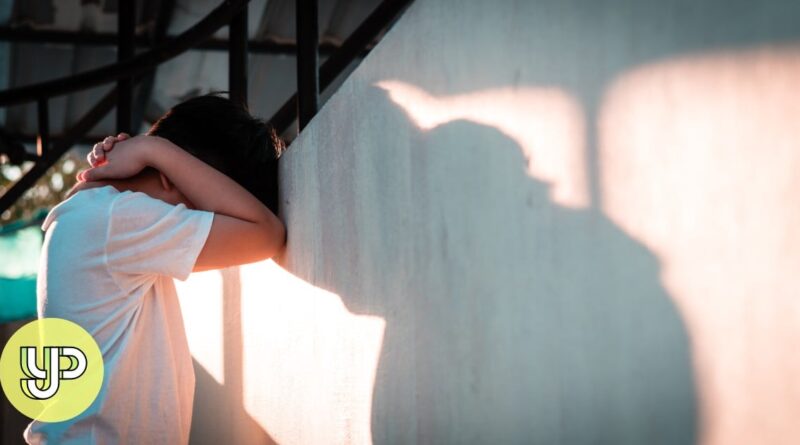280 Hong Kong students identified as being at higher risk of suicide
Hong Kong’s education chief has revealed that over 280 students have been singled out as being at a higher risk of suicide and referred to psychiatric services at public hospitals.
Secretary for Education Christine Choi Yuk-lin also said on the first day of the academic term on Monday that less than half of primary and secondary schools had signed up for a newly launched mental health programme.
Mental distress among young people has remained a concern. The suicide rate among the demographic in Hong Kong is considered one of the highest in the developed world, according to official figures.
Education authorities previously said the number of suspected suicides involving primary and secondary school students stood at 32 last year. This was more than double the figure recorded for 2018.
After visiting a secondary school in Tuen Mun, Choi said the early identification of pupils considered to be at high risk of suicide or with other mental health needs enabled timely access to professional counseling or treatment services.
More than 280 cases had been reported as of the end of the summer holiday under the third tier of the “three-tier school-based emergency mechanism”, which was launched in December of last year. They were referred to the psychiatric specialist services of the Hospital Authority by school principals.
Another 120 students were classified in the second tier, she said. Schools referred the cases to an off-campus support network team organized by the Social Welfare Department. The mechanism was planned to run until the end of this year.
Why teen athletes struggle to keep their head in the game: sports psychologist
Asked whether the Education Bureau would make it permanent to provide ongoing support to students, Choi said: “At this stage, we will communicate with schools to understand their needs and discuss with our staff the best way to help these students in need.”
Provisional data from the Hong Kong Jockey Club Center for Suicide Research and Prevention at the University of Hong Kong showed the suicide rate for those aged 15 to 24 had risen to 12.2 deaths per 100,000 people, from 6.2 between 2014 and 2022.
Japan, South Korea and the United States were the highest, with a suicide rate as high as 16.8 per 100,000 people.
Authorities have attributed the rise in suicides among youths to factors such as the Covid-19 pandemic and the hurdles students faced after the city’s return to normality.
In April, the bureau also launched the 4R Mental Health Charter. It focuses on rest and relaxation, as well as building relationship skills and fostering resilience among pupils.
As of July, 420 out of the city’s 927 primary and secondary schools have agreed to the voluntary charter, representing 43 percent of all schools, Choi said.
“I know different schools have their individual mental health support programs. I believe as those programs consolidate, more schools would enroll in this 4R program,” she said at Tsung Tsin College, one of the schools that had agreed to the charter.
Less than half of primary and secondary schools have adopted a new mental health charter, education chief Christine Choi said. Photo: Jonathan Wong
A survey conducted by the Baptist Oi Kwan Social Service between November 2023 and April 2024 found that 20 percent of the 1,600 secondary school respondents had symptoms of anxiety and depression.
Among the major causes of stress were academic studies and concerns about personal appearance.
Thomas Fung Chak-tong, a social worker in charge of the NGO’s school team offering mental wellness services to students, said many young people were unwilling to seek help for fear of being labeled and having their parents called to the school.
He noted that more than half of the students judge themselves harshly when they underperformed or when academic results did not meet their expectations.
“This mindset has a strong correlation with anxiety and depression symptoms. Students should learn to be less hard on themselves and set a plan to achieve their target step by step, but not hoping to do it overnight,” he told a radio programme.
Schools, meanwhile, could let students take up some posts of responsibility on campus, such as a perfect library, to help them build a sense of belonging and resilience, he said.
Michelle Chan Yuen-tung, a counseling psychologist at the Hong Kong Red Cross, said more young people had requested mental health support before the start of the school year.
“They prefer seeking professional help in an out-of-school context instead of turning to their families or social workers because they want to speak with a stranger with a more neutral perspective,” she told the same radio programme.
Chan said those struggling with mental health often adopted a “fixed mindset”, focusing on outcomes, while a “growth mindset” valued the learning process which would help cope with stress.
If you have suicidal thoughts, or you know someone who is, help is available. For Hong Kong, dial +852 18111 for the government-run “Mental Health Support Hotline” or +852 2896 0000 for The Samaritans and +852 2382 0000 for Suicide Prevention Services. In the US, call or text 988 or chat at 988lifeline.org for the 988 Suicide & Crisis Lifeline.
For a list of other nations’ helplines, see this page.
#Hong #Kong #students #identified #higher #risk #suicide
